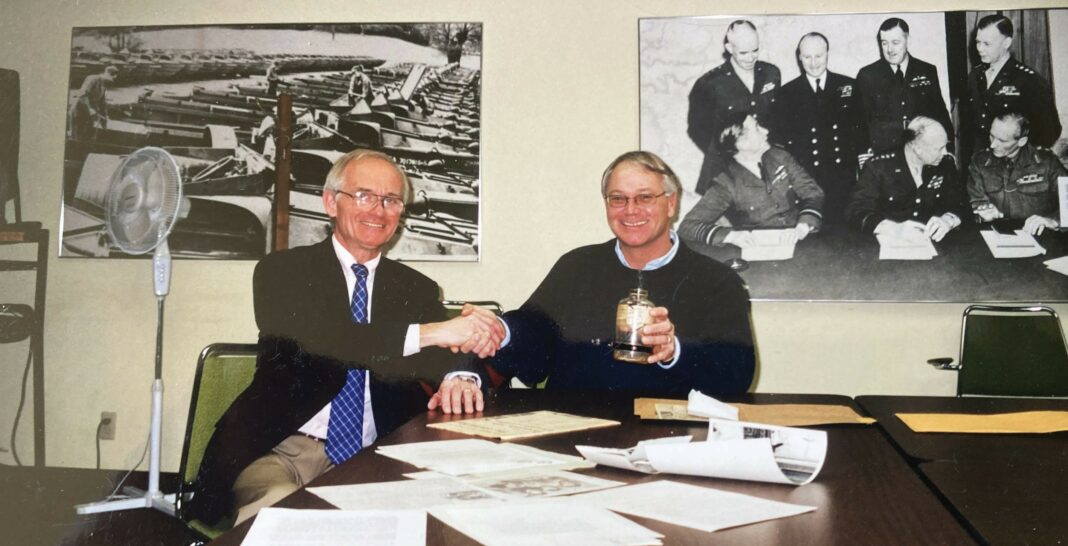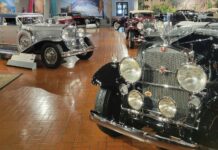By By William J. Fuller II, a Great Lakes Energy Cooperative member
My dad, Dr. William J. Fuller, was born in 1912 in the small town of Yale, Michigan. With determination and hard work, he put himself through Eastern Michigan University and then the University of Michigan Medical School, graduating in 1938. He completed his residency at University Hospital in Ann Arbor, spending a year specializing in neurosurgery. In 1941, he married his high school sweetheart and, shortly after, joined the University Hospital Army Unit.
As World War II escalated, my dad was called to Camp Robinson in Arkansas for hospital training. Little did my mother know, she would not see him again until 1945. In 1942, he was shipped to England to serve with the 298th General Hospital. Alongside his unit, he landed on Utah Beach during the Normandy invasion and set up a hospital in Cherbourg.
Neurosurgeons were in high demand as the Allies advanced across France. Due to his specialized training, my dad was transferred to the 15th General Hospital in Liège, Belgium. Liège was under heavy bombardment from German buzz bombs, and the hospital was hit, resulting in 28 deaths and 150 injuries. Despite the dangers, he continued to serve with the 298th in a tent hospital set up in an open field.
One day, a young soldier with a severe shrapnel wound was brought in and needed a blood transfusion. While he prepared the transfusion, my dad noticed a familiar name on the bottle of donated blood: Dwight D. Eisenhower, the Supreme Commander of the Allied Expeditionary Forces in Europe. Eisenhower had personally donated blood to the Allied blood drive.
When my dad was discharged in 1945, among the memorabilia he brought home was the blood bottle bearing Eisenhower’s name. It was displayed in a small cabinet in our home, a poignant reminder of his service and the connections forged during the war. He often expressed a desire to personally deliver this bottle to the Eisenhower Library and Museum in Abilene, Kansas.
After my dad passed away in 1996, the bottle remained in our family cabinet. Honoring his longstanding wish, my wife Laura and I made the journey to Abilene in 2002. We presented the bottle to the director of the Eisenhower Museum, finally fulfilling my dad’s heartfelt desire.
Dr. William J. Fuller’s legacy is one of dedication, service, and the profound impact of small, meaningful acts in the midst of global conflict.






